5 Proven Benefits Of Ginger Tea, Recipes, And Side Effects
Explore the goodness of ginger tea and nourish your health by sipping on this concoction.

Image: Shutterstock
Ginger is the underground stem of the flowering plant Zingiber officinale and is often used to prepare tea. The benefits of ginger tea are the same as ginger as a culinary spice. Therefore, you can take advantage of the benefits of ginger by sipping on ginger tea. There are many reasons to include ginger in your diet. It is packed with nutrients that promote good health. Here you will learn everything you need to know about the health benefits of ginger tea, how to make it, and potential side effects. Take a look.
In This Article
Most Common Ginger Tea Benefits For Health
Traditionally, ginger has been used to treat various ailments ranging from nausea to high blood sugar levels. Many of its uses that you hear about have been passed down through the centuries. It goes without saying that the popularity of ginger has been quite high for a while; luckily, the benefits of drinking ginger tea are also backed up by Science.
1. Prevents High Blood Pressure And Keeps Your Heart Healthy
Is ginger good for high blood pressure? The answer is “Yes”! A study conducted to evaluate the effect of regular ginger consumption on chronic diseases (health conditions that generally last at least a year or more) confirms that ginger can prevent high blood pressure and other heart diseases. Gingerols, and shogaols, two of the active compounds in ginger, have a plethora of healing properties to keep your heart happy and pumping merrily (1).
2. Fights Obesity And Controls Blood Sugar Levels
You can warm yourself with a bright cup of ginger tea and shed weight sipping on it. Ginger tea for weight loss is gaining popularity, and with good reason! A review of multiple studies conducted to explore the effects of ginger on weight loss and metabolism has some great things to say! Ginger not only helps to reduce body weight but also decreases waist-hip ratio, fasting glucose levels, and insulin resistance (2).
3. Alleviates Nausea From Morning Sickness Or Chemotherapy
Getting sick is sickening— and stressful! If you are pregnant or undergoing treatment for cancer, you may be relieved to know that anti-nausea drugs have a natural alternative in ginger. A systematic review conducted to investigate the efficacy and safety of taking ginger to improve symptoms of nausea and vomiting during pregnancy has great results for you. You can drink ginger tea or get all ginger water benefits with no risk to your baby to make nausea symptoms better. As a caution, it is best to not take more than 1500 mg daily, which is roughly a tablespoon of grated ginger. Also, discuss this with your doctor before you start (3).
A clinical trial with patients receiving chemotherapy was conducted to find if ginger could treat the associated acute nausea and vomiting. The conclusion? If you consume between 0.5 g to 1g of ginger per day, you may find your symptoms much improved (4). However, make sure that you get your doctor’s opinion before you start consuming ginger regularly.
4. Supports Oral Health And Boosts Immunity
If you want a smile that shines and less frequent visits to the dentist, stock up on fresh ginger. That’s because, according to a study, compounds called gingerols present in ginger work wonders to fight off some really nasty bacteria that can otherwise mess up your dental health.
There are other benefits of ginger tea besides being a natural, tasty, and easy-to-prepare antimicrobial elixir; it has antifungal, analgesic, and anti-inflammatory properties. This means that incorporating ginger into your diet can give your immune system a good boost (5).
5. Relieves Muscle Soreness And Pain
Aching from menstrual cramps, sore muscles after a workout, or a bout of migraine? A dash of ginger in your tea may just do the trick. The anti-inflammatory, antioxidant, and analgesic properties of ginger work together to alleviate symptoms of pain, according to a research study conducted to understand its role in pain relief (6).
6. Helps With Chronic Indigestion
Ginger tea is a popular remedy for chronic indigestion due to its natural digestive properties. Its active compound, gingerol, aids digestion by accelerating the movement of food through the stomach, reducing symptoms of indigestion like bloating, belching, dyspepsia, gastric discomfort, and nausea (7). Steep freshly grated or sliced ginger in hot water for 5-10 minutes to brew ginger tea. If consumed regularly as a part of a balanced diet and lifestyle, ginger tea can enhance gastric emptying and provide relief from gastrointestinal discomfort, promoting overall digestive health.
Do all these benefits of ginger tea make you want to switch to a ginger tea diet pronto? You may want to slow down and head over to the next section to find out how safe ginger tea is for you.
Key Takeaways
- Ginger tea can prevent high blood pressure and other heart diseases.
- The anti-inflammatory, antioxidant, and analgesic properties of ginger alleviate pain symptoms.
- The anti-cancer properties of ginger can prevent the growth of ovarian cancer cells.
- Use only 6g of ginger for making your tea, as excessive quantities may trigger abdominal discomfort and other mild side effects.
Are There Any Side Effects Of Drinking Ginger Tea?
No, ginger, and more specifically ginger tea, has no severe side effects. The catch here for you is to not binge on ginger and err on the side of caution in certain situations.
- Heartburn, Gas, And Diarrhea
It is hard to overdose on ginger tea, but if you have too many cups, you may reverse all the wonderful work ginger has done for your digestive tract and find yourself bloated and gassy. According to a review of studies that were conducted to look at ginger and its effect on human health, heartburn is a possible symptom of having more ginger than your body wants. Some mention of diarrhea as a side effect of ginger is presented, but there is not enough conclusive data on this (8).
- Concerns During Pregnancy
This one’s not really a side effect and rather a word of caution. Ginger has properties that make it act as a blood thinner, which may lead to bleeding. You, like many others, may be terrified of ginger right now and want to keep it at a distance, especially if you are carrying a baby. Rest easy because a systematic review of studies noted that 1g of fresh ginger up to four days a week is safe for the mother and child in the first trimester for the treatment of morning sickness (9).
- Blood Thinning Effect And Possible Interactions
If you are on blood thinners, like Warfarin or other similar drugs, it is best to speak to your doctor before including ginger tea in your diet. Research shows that ginger has an anti-coagulation effect on the body. That means, it can slow down blood clotting and lead to bleeding. However, you need not be concerned unless you are due for surgery the following day or are taking blood-thinning medication. In these cases, follow your doctor’s advice (10).
 Did You Know?
Did You Know?You must be eager to jump to where you are sitting cozy and drinking this exquisite elixir after learning about all the ginger drink health benefits, so here are some quick and quintessential recipes coming right up!
Recipe Time: 2 Sure-fire WaysTo Make Delicious Ginger Tea
Just like ginger tea benefits, ginger tea recipes are numerous. The creative possibilities of combining ingredients with ginger to make a fantastic cup brimming with health benefits are endless. For instance,
- If you want to stop a cold coming on right on its tracks, make the most of lemon ginger tea benefits for the immune system. Lemon has been traditionally used to treat a common cold (11).
- Honey ginger tea benefits a sore throat, with the combined anti-inflammatory action of ginger and honey providing faster relief (12) (13).
To make things simple for you, here’s the most basic ginger tea recipe. Get this right and you won’t have to spend cold mornings and late evenings wondering what to drink!
#1: The Simplest Ginger Tea Recipe For Keeps
Servings-
2 cups
Time
- Preparation: 2 minutes
- Process: 5 minutes
Ingredients
- 2 cups of water
- 1 piece of fresh ginger root
Preparation
1. Wash and clean the ginger to remove any dirt and soil.
2. Scrape away the peel of ginger with a spoon. If you have organic ginger, you can skip this step and leave the skin on.
3. Slice the ginger into 1 to 2 inch thick sections. Each cup uses 2 such slices.
Process
1. Pour 2 cups of water into a saucepan and put over medium heat.
2. Add four 1-2 inch slices of ginger to the water and bring to a boil.
3. Let it boil over medium heat for 5 minutes.
4. Strain and pour a cup to enjoy all the benefits of ginger tea.
5. (Optional) You can squeeze in a dash of lemon and/or drizzle a little honey for added flavor and benefits.
This earthy and mildly spicy tea is perfect served hot on cold or gloomy days. Hop on to the next recipe for a cool refreshing drink.
#2: Refreshing Honey Ginger Iced Tea As A Summer Cordial

Servings- 8 cups
Time
- Preparation: 5 minutes
- Total: 25 minutes
Ingredients
- 8 cups of water
- 8 tea bags or 2 tablespoons of loose black tea leaves
- 1/3rd cup of honey
- 2 teaspoons of finely-grated fresh ginger
Preparation
1. Put water to boil.
2. Clean, peel and grate a knob of ginger.
Process
1. Pour the bubbling water into a glass pitcher that is heat-resistant.
2. Dip the tea bags or add the loose tea leaves and let them sit steeping for 10 minutes.
3. Discard the tea bags or strain the tea and let it come down to room temperature.
4. Stir in the ginger you have grated and the honey.
5. Stash it in the fridge for it to chill nicely.
6. As a reward for your patience, pour and enjoy!
Praveena Gudipati, a blogger, shares her love for ginger tea and provides a step-by-step recipe along with photos. She emphasizes the importance of tea in her daily routine, highlighting the distinction between tea and coffee drinkers. She mentions, “Ginger tea is something I make during winter. Ginger has great medicinal values. It protects from the colds and coughs in winter.” (i)
 Fun Fact
Fun FactNow that you know how to make yourself a glorious cup of golden health, you may want to know why, as a woman, you should totally make best friends with ginger (the diamond is overrated, really!).
The Amazing Effects Of Ginger On A Woman’s Body

The health benefits of ginger tea can be experienced by all; but as a woman, you get some exciting additional benefits besides all the ones you have read above.
- Easier Periods
Drink a warm cup of ginger tea to soothe muscle cramps during your period. Due to its anti-coagulation properties, chances are you may need to pass fewer blood clots and have a considerably smoother menstrual flow (14).
- Lowered Risk Of Ovarian Cancer
Ovarian cancer poses a huge threat to the life and well-being of every woman. Luckily, a study undertaken to confirm the effect of ginger on cancer cells noted that ginger can prevent the growth of ovarian cancer cells, thanks to its anti-cancer properties. All the more reason to drink ginger tea every day, right (15)?
- Delayed Aging
Who doesn’t want to look forever young? A review of current evidence regarding the anti-oxidative and anti-inflammatory effects of ginger on human health has noted that ginger can control the process of aging. The best part? You can get some amazing ginger tea benefits on skin like fewer wrinkles, delayed age-lines, and an overall youthful look. Plus, the action of ginger and warm water can bring a glow to your skin (16).
There is one more interesting thing that ginger tea does to your body. It is about something no one wants to talk about, but everyone wants to do. Take a guess— that’s right! It makes you poop. Is it bad poop or good poop? Read on to find out.
Does Ginger Tea Have Any Effect On Constipation?
Yes, the happy answer is yes. Drinking ginger tea can help you take a long and satisfying dump. A review of studies undertaken to analyze the effectiveness of ginger against gastro-intestinal disorders summarizes that ginger can help to move food more quickly through the intestines and pass smoothly (17).
.
Wondering how to get the most out of all the benefits of ginger tea by adding it to your health and fitness regime? Read on to find out how often is not too often for a cup.
Drinking Ginger Tea Every Day: Is It A Good Idea?
Yes, you can enjoy the benefits of ginger through its wholesome brew every day without exposing yourself to any risk of ginger-related side effects. The recommended daily dose is 4g of ginger, according to a peer-reviewed published article consolidating evidence-based data on the herb. In any case, stay below 6g of ginger for making your tea every day, as quantities beyond that may trigger abdominal discomfort and other mild side effects. However, if you are pregnant, due for surgery, or undergoing treatment for cancer, diabetes, and high blood pressure, you need to be cautious and check your dosage with your doctor to continue getting ginger tea benefits (18).
Ginger tea benefits your body in several ways. It is loaded with many beneficial nutrients, vitamins, and minerals. Ginger tea is good for your heart, immunity, and oral health. It relieves muscle soreness and pain and is a good drink after an intense workout. Ginger tea may help manage weight and blood sugar levels. Women should take it, particularly because it may ease menstrual blood flow and reduce the risk of ovarian cancer. Nevertheless, excessive consumption may have side effects. It may cause heartburn, gas, or interfere with blood-thinning medications. If you experience any side effects, limit your consumption and seek medical advice.
Frequently Asked Questions
Which is better: green tea or ginger tea?
Although there are many benefits of green tea, many healthcare professionals and nutritionists claim that ginger tea is a better choice because of its antioxidant content. Ginger tea strengthens immunity, has a calming effect, and also improves digestion.
Should I drink ginger tea hot or cold?
Ginger tea can be enjoyed both hot and cold. It can be a refreshing drink in both forms.
Can I drink ginger tea on an empty stomach?
Yes, ginger tea can be taken on an empty stomach. It helps strengthen the digestive system and manage nausea.
Is ginger tea good for kidneys?
Yes, ginger tea is good for kidneys. It helps reduce renal inflammation and also promotes kidney function.
Watch this video to get a detailed explanation of the benefits of green tea and how it is better than coffee. Navigate the risks of overconsumption and learn the optimal way to savor this antioxidant-rich elixir for a beautiful you.
Personal Experience: Source
StyleCraze's articles are interwoven with authentic personal narratives that provide depth and resonance to our content. Below are the sources of the personal accounts referenced in this article.
(i) Ginger Tea/ Allam Teahttps://veggibites.blogspot.com/2014/11/ginger-tea-allam-tea.html
References
Articles on StyleCraze are backed by verified information from peer-reviewed and academic research papers, reputed organizations, research institutions, and medical associations to ensure accuracy and relevance. Read our editorial policy to learn more.
- Evaluation Of Daily Ginger Consumption For The Prevention Of Chronic Diseases In Adults: A Cross-sectional Study
https://pubmed.ncbi.nlm.nih.gov/28336112/ - The Effects Of Ginger Intake On Weight Loss And Metabolic Profiles Among Overweight And Obese Subjects: A Systematic Review And Meta-analysis Of Randomized Controlled Trials
https://pubmed.ncbi.nlm.nih.gov/29393665/ - A Systematic Review And Meta-analysis Of The Effect And Safety Of Ginger In The Treatment Of Pregnancy-associated Nausea And Vomiting
https://www.ncbi.nlm.nih.gov/pmc/articles/PMC3995184/ - Ginger (Zingiber Officinale) Reduces Acute Chemotherapy-induced Nausea: A URCC CCOP Study Of 576 Patients
https://pubmed.ncbi.nlm.nih.gov/21818642/ - Antibacterial Activity Of [10]-gingerol And [12]-gingerol Isolated From Ginger Rhizome Against Periodontal Bacteria
https://pubmed.ncbi.nlm.nih.gov/18814211/ - A review of the gastroprotective effects of ginger (Zingiber officinale Roscoe)
https://pubmed.ncbi.nlm.nih.gov/23612703/ - Zingiberaceae Extracts For Pain: A Systematic Review And Meta-analysis
https://www.researchgate.net/publication/276360443_Zingiberaceae_extracts_for_pain_A_systematic_review_and_meta-analysis - Ginger On Human Health: A Comprehensive Systematic Review Of 109 Randomized Controlled Trials
https://www.ncbi.nlm.nih.gov/pmc/articles/PMC7019938/#app1-nutrients-12-00157 - How Safe Is Ginger Rhizome For Decreasing Nausea And Vomiting In Women During Early Pregnancy?
https://pubmed.ncbi.nlm.nih.gov/29614764/ - The Effect Of Ginger (Zingiber Officinale) On Platelet Aggregation: A Systematic Literature Review
https://www.ncbi.nlm.nih.gov/pmc/articles/PMC4619316/ - Citrus Limon (Lemon) Phenomenon—A Review Of The Chemistry Pharmacological Properties Applications in the Modern Pharmaceutical Food and Cosmetics Industries and Biotechnological Studies
https://www.ncbi.nlm.nih.gov/pmc/articles/PMC7020168/ - Role Of Honey As Adjuvant Therapy In Patients With Sore Throat
https://www.researchgate.net/publication/312104274_Role_of_honey_as_adjuvant_therapy_in_patients_with_sore_throat - Anti-Oxidative And Anti-Inflammatory Effects Of Ginger In Health And Physical Activity: Review Of Current Evidence
https://www.ncbi.nlm.nih.gov/pmc/articles/PMC3665023/ - The Effect Of Ginger (Zingiber Officinale) On Platelet Aggregation: A Systematic Literature Review
https://www.ncbi.nlm.nih.gov/pmc/articles/PMC4619316/ - The Inhibitory Effect Of Ginger Extract On Ovarian Cancer Cell Line; Application Of Systems Biology
ttps://www.ncbi.nlm.nih.gov/pmc/articles/PMC5527238/ - Anti-Oxidative and Anti-Inflammatory Effects of Ginger in Health and Physical Activity: Review of Current Evidence
https://www.ncbi.nlm.nih.gov/pmc/articles/PMC3665023/ - Ginger In Gastrointestinal Disorders: A Systematic Review Of Clinical Trials
https://www.ncbi.nlm.nih.gov/pmc/articles/PMC6341159/ - Ginger
https://www.ncbi.nlm.nih.gov/pmc/articles/PMC5008850/
- Evaluation Of Daily Ginger Consumption For The Prevention Of Chronic Diseases In Adults: A Cross-sectional Study
- Evaluation Of Daily Ginger Consumption For The Prevention Of Chronic Diseases In Adults: A Cross-sectional Study
https://pubmed.ncbi.nlm.nih.gov/28336112/ - The Effects Of Ginger Intake On Weight Loss And Metabolic Profiles Among Overweight And Obese Subjects: A Systematic Review And Meta-analysis Of Randomized Controlled Trials
https://pubmed.ncbi.nlm.nih.gov/29393665/ - A Systematic Review And Meta-analysis Of The Effect And Safety Of Ginger In The Treatment Of Pregnancy-associated Nausea And Vomiting
https://www.ncbi.nlm.nih.gov/pmc/articles/PMC3995184/ - Ginger (Zingiber Officinale) Reduces Acute Chemotherapy-induced Nausea: A URCC CCOP Study Of 576 Patients
https://pubmed.ncbi.nlm.nih.gov/21818642/ - Antibacterial Activity Of [10]-gingerol And [12]-gingerol Isolated From Ginger Rhizome Against Periodontal Bacteria
https://pubmed.ncbi.nlm.nih.gov/18814211/ - A review of the gastroprotective effects of ginger (Zingiber officinale Roscoe)
https://pubmed.ncbi.nlm.nih.gov/23612703/ - Zingiberaceae Extracts For Pain: A Systematic Review And Meta-analysis
https://www.researchgate.net/publication/276360443_Zingiberaceae_extracts_for_pain_A_systematic_review_and_meta-analysis - Ginger On Human Health: A Comprehensive Systematic Review Of 109 Randomized Controlled Trials
https://www.ncbi.nlm.nih.gov/pmc/articles/PMC7019938/#app1-nutrients-12-00157 - How Safe Is Ginger Rhizome For Decreasing Nausea And Vomiting In Women During Early Pregnancy?
https://pubmed.ncbi.nlm.nih.gov/29614764/ - The Effect Of Ginger (Zingiber Officinale) On Platelet Aggregation: A Systematic Literature Review
https://www.ncbi.nlm.nih.gov/pmc/articles/PMC4619316/ - Citrus Limon (Lemon) Phenomenon—A Review Of The Chemistry Pharmacological Properties Applications in the Modern Pharmaceutical Food and Cosmetics Industries and Biotechnological Studies
https://www.ncbi.nlm.nih.gov/pmc/articles/PMC7020168/ - Role Of Honey As Adjuvant Therapy In Patients With Sore Throat
https://www.researchgate.net/publication/312104274_Role_of_honey_as_adjuvant_therapy_in_patients_with_sore_throat - Anti-Oxidative And Anti-Inflammatory Effects Of Ginger In Health And Physical Activity: Review Of Current Evidence
https://www.ncbi.nlm.nih.gov/pmc/articles/PMC3665023/ - The Effect Of Ginger (Zingiber Officinale) On Platelet Aggregation: A Systematic Literature Review
https://www.ncbi.nlm.nih.gov/pmc/articles/PMC4619316/ - The Inhibitory Effect Of Ginger Extract On Ovarian Cancer Cell Line; Application Of Systems Biology
ttps://www.ncbi.nlm.nih.gov/pmc/articles/PMC5527238/ - Anti-Oxidative and Anti-Inflammatory Effects of Ginger in Health and Physical Activity: Review of Current Evidence
https://www.ncbi.nlm.nih.gov/pmc/articles/PMC3665023/ - Ginger In Gastrointestinal Disorders: A Systematic Review Of Clinical Trials
https://www.ncbi.nlm.nih.gov/pmc/articles/PMC6341159/ - Ginger
https://www.ncbi.nlm.nih.gov/pmc/articles/PMC5008850/
Read full bio of Silky Mahajan
Read full bio of Varsha Patnaik
Read full bio of Ravi Teja Tadimalla
Read full bio of Payal Karnik






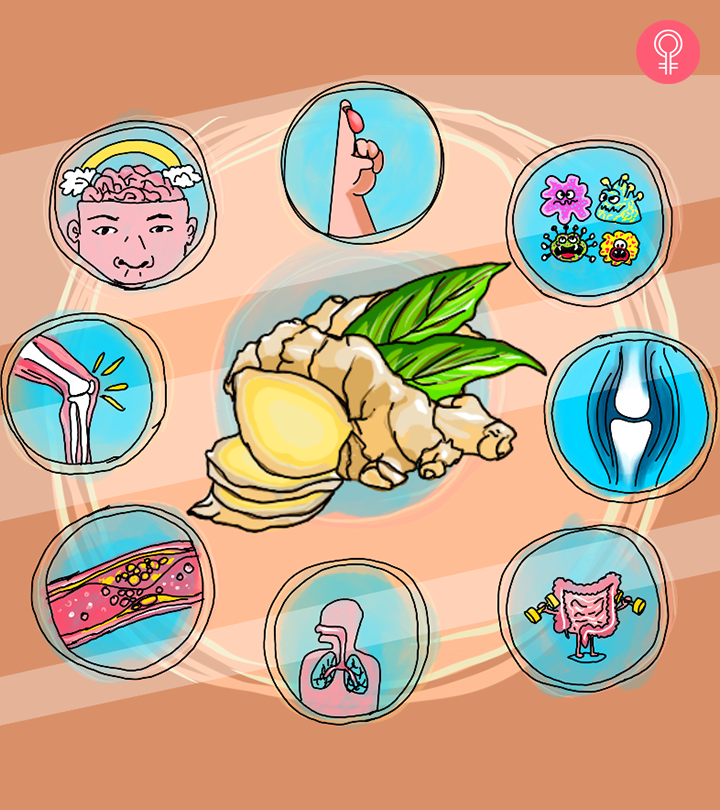
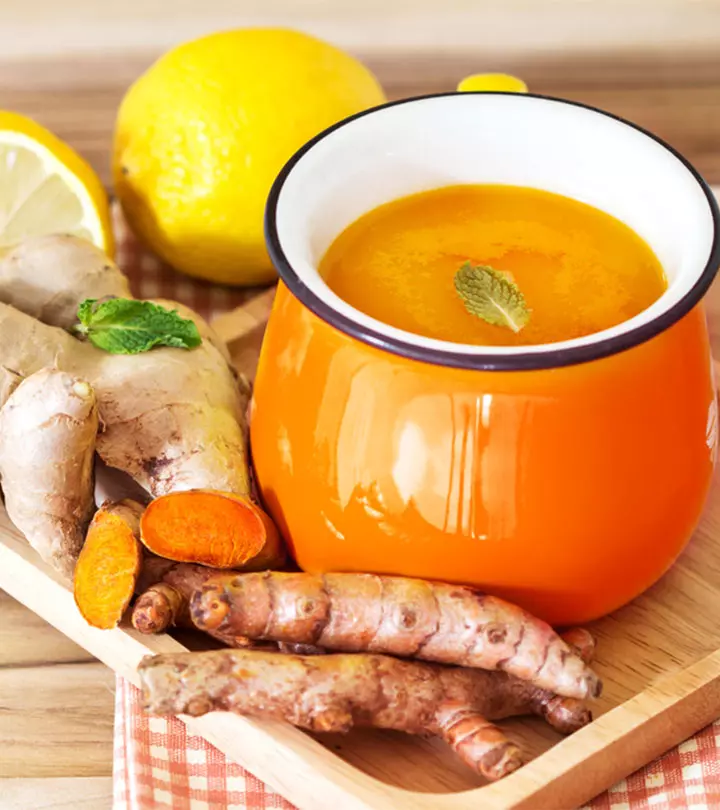
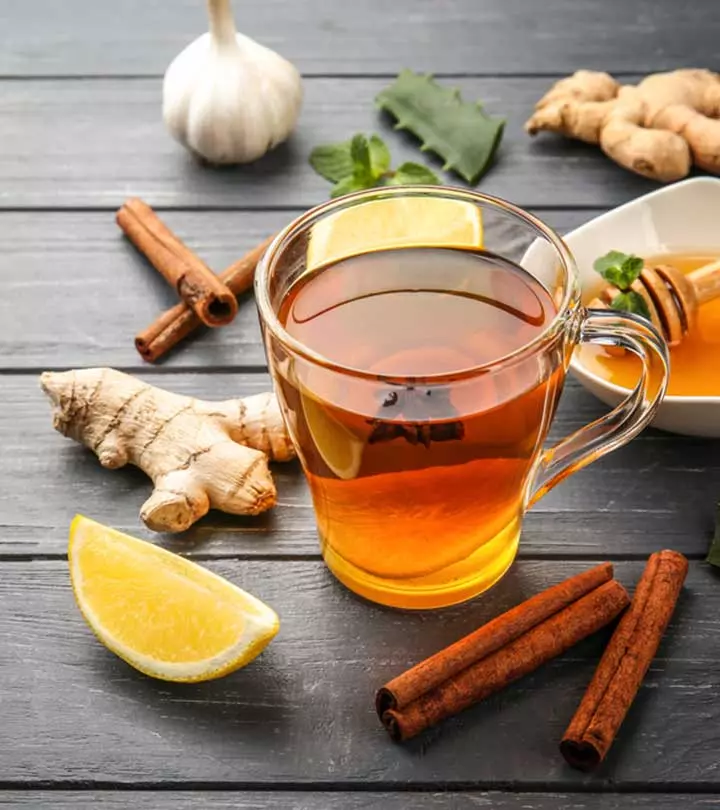
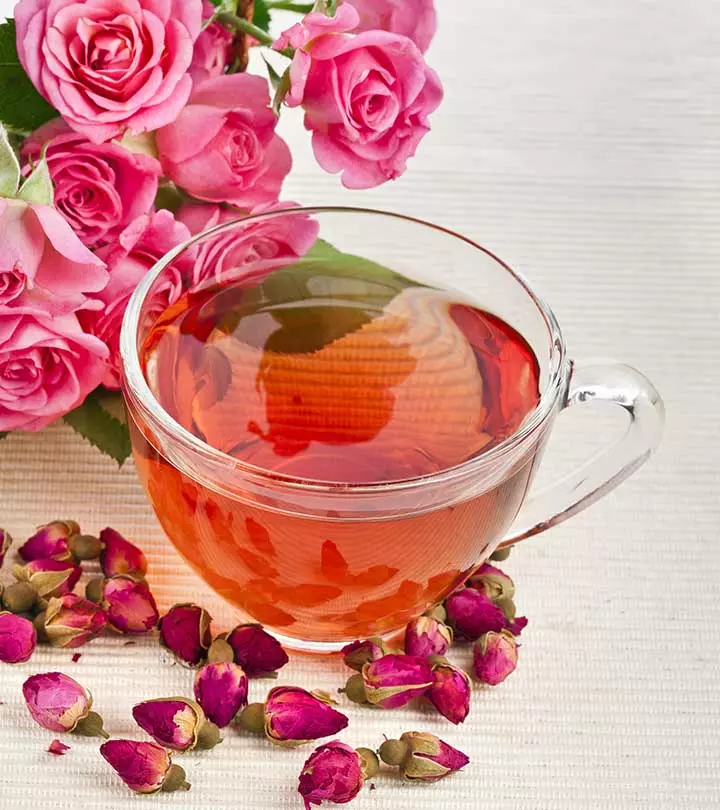
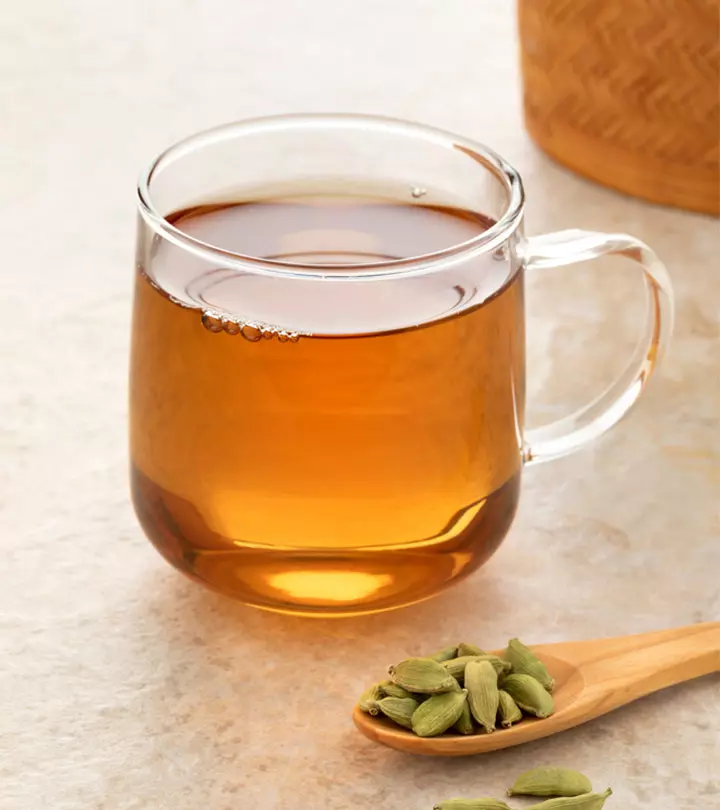
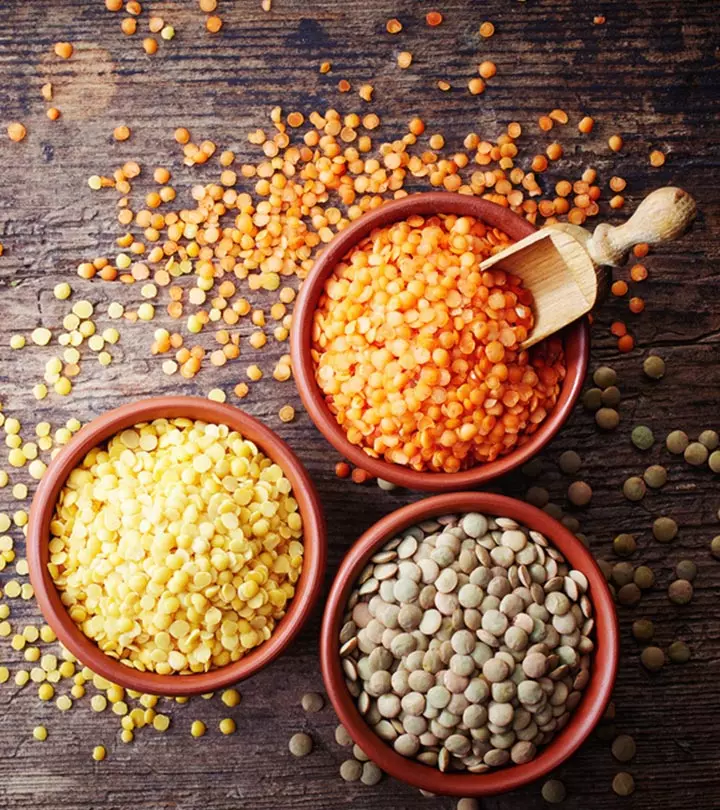
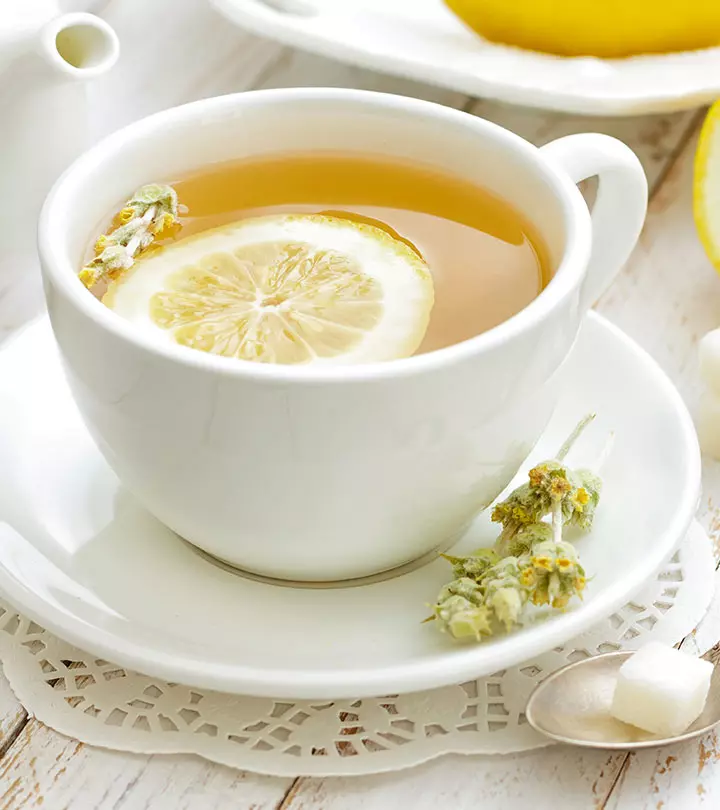
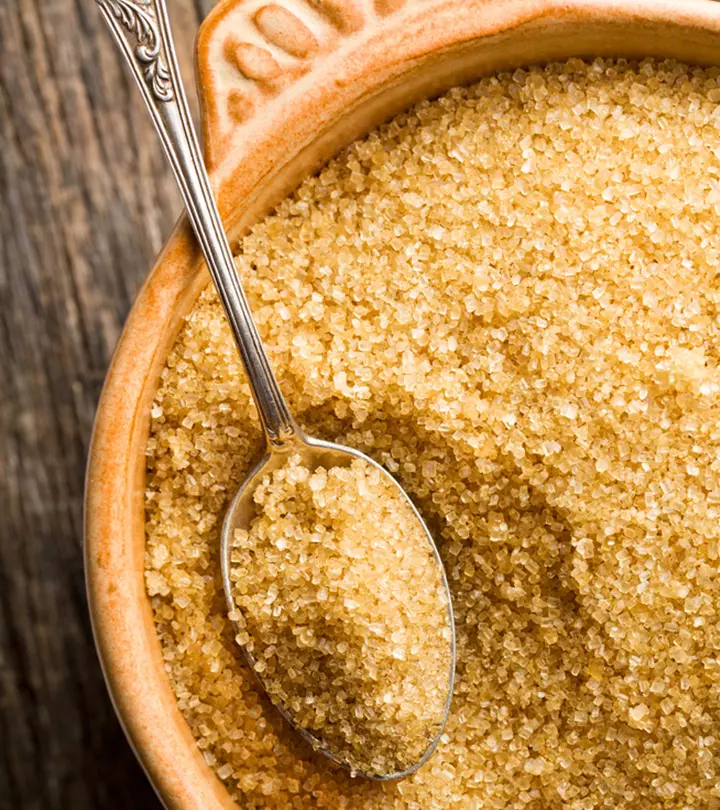
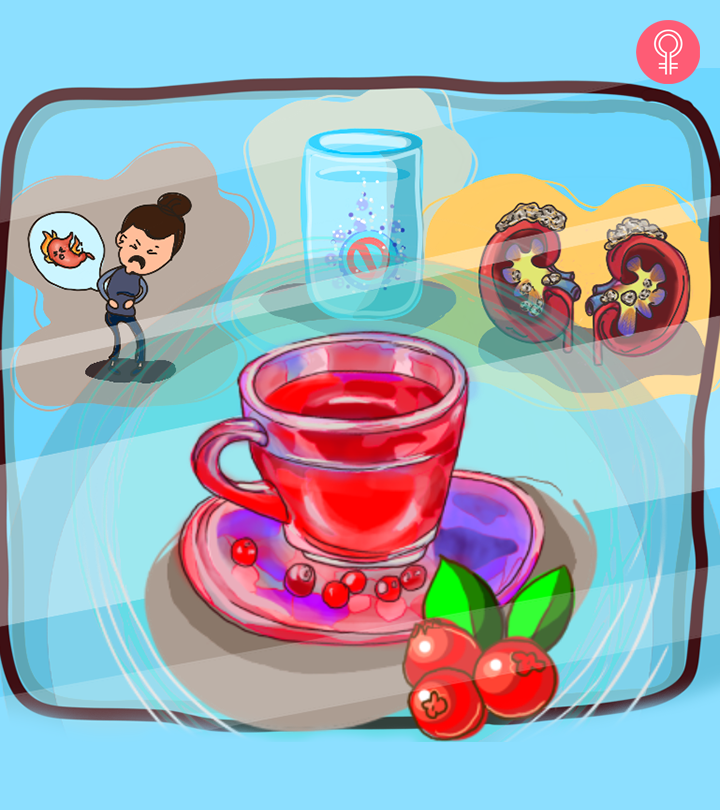
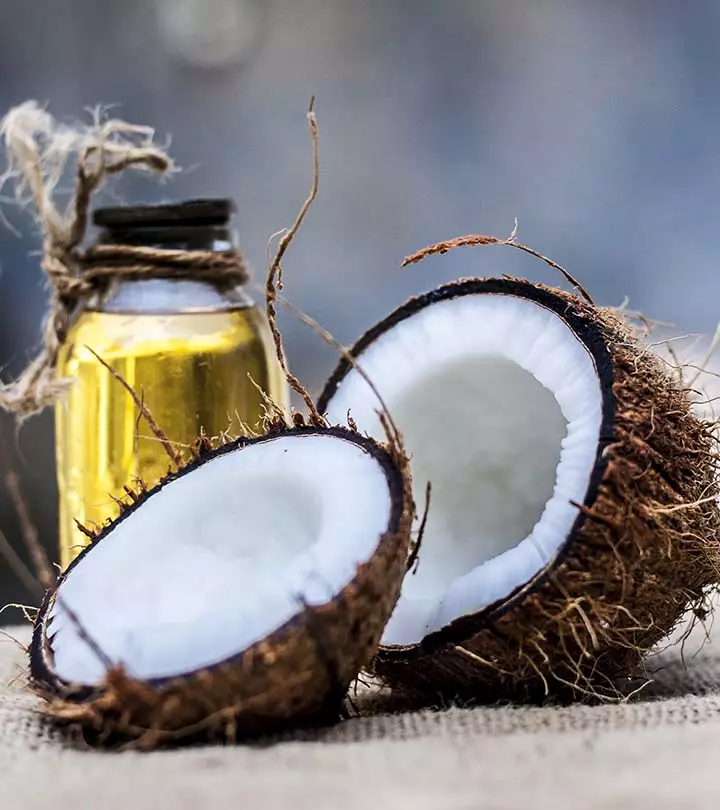
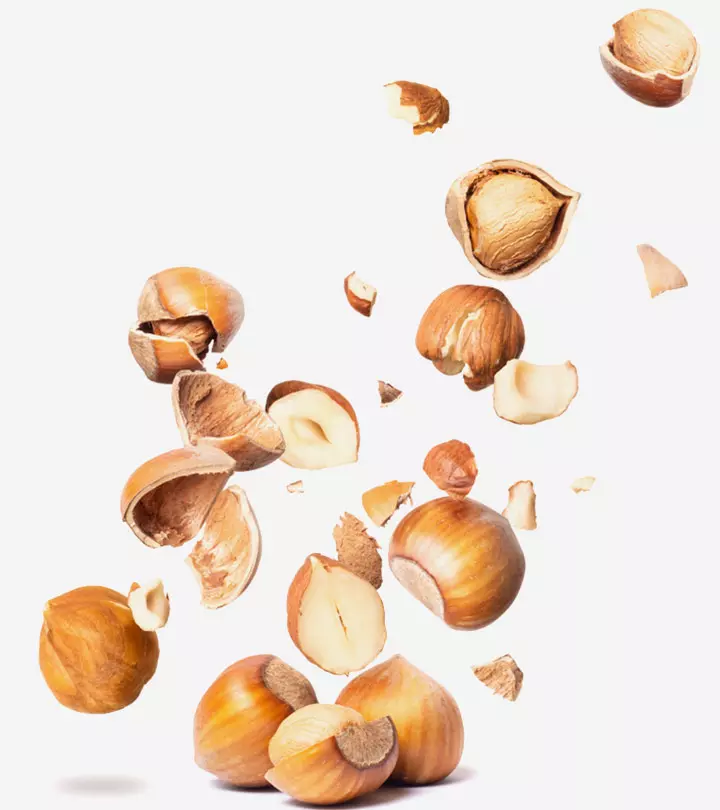
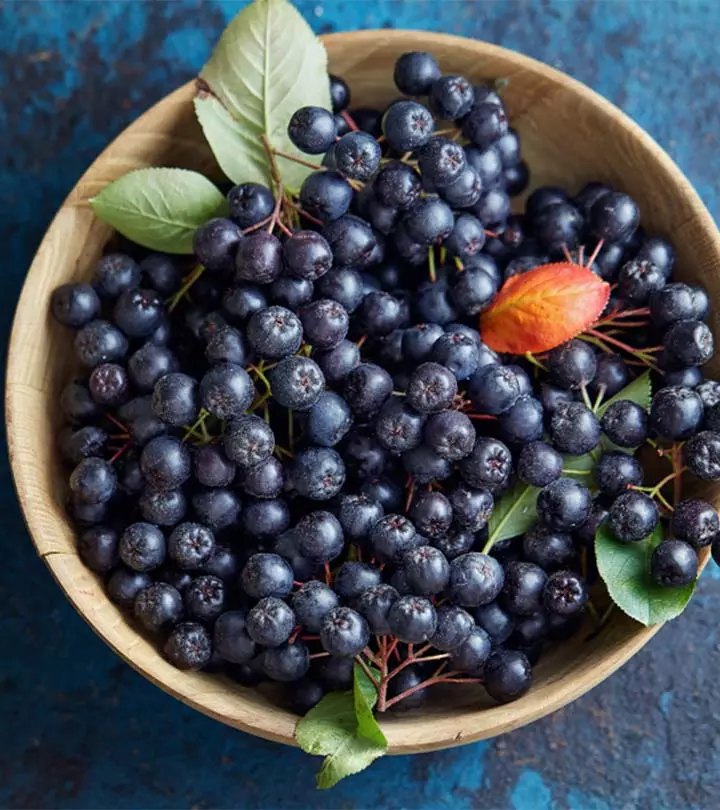


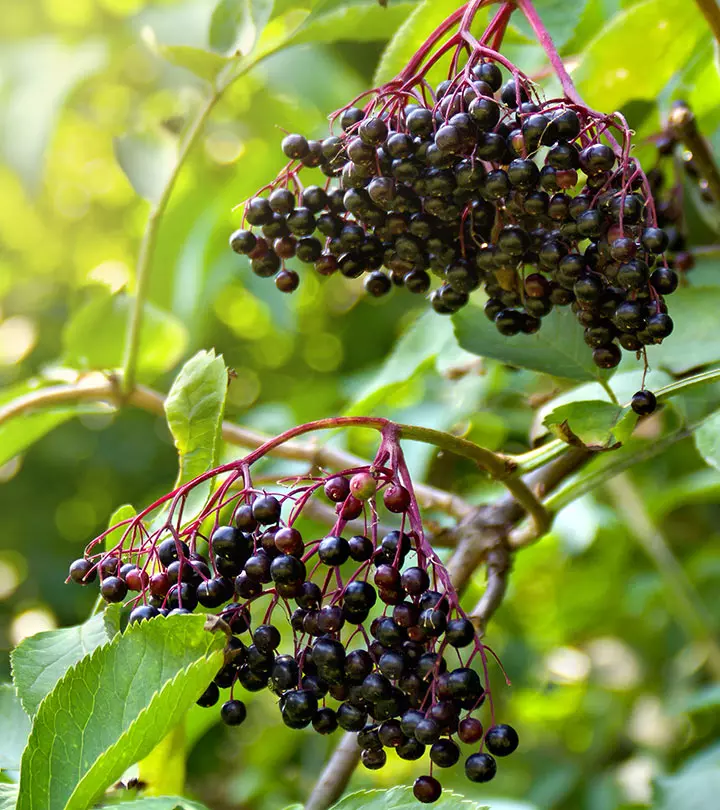
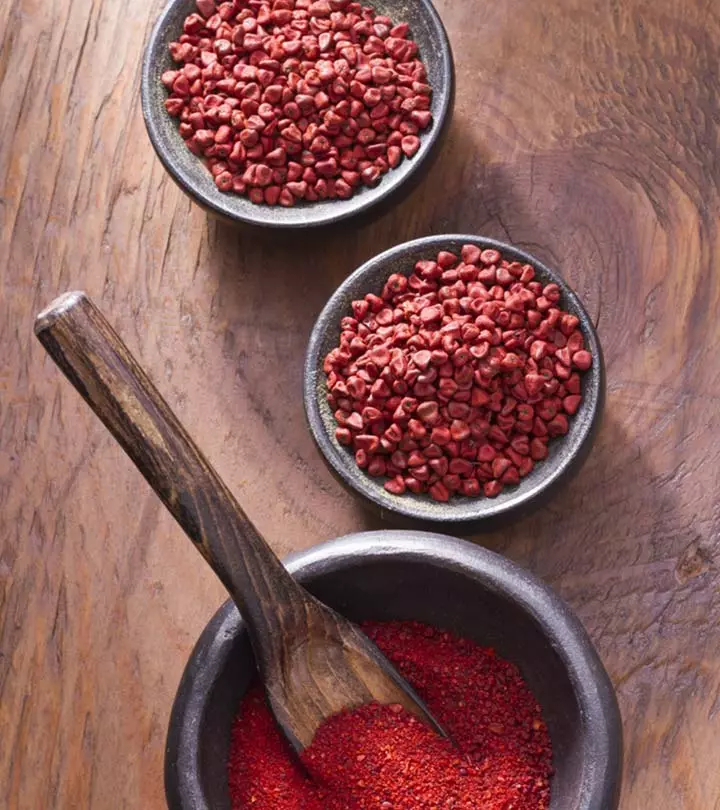
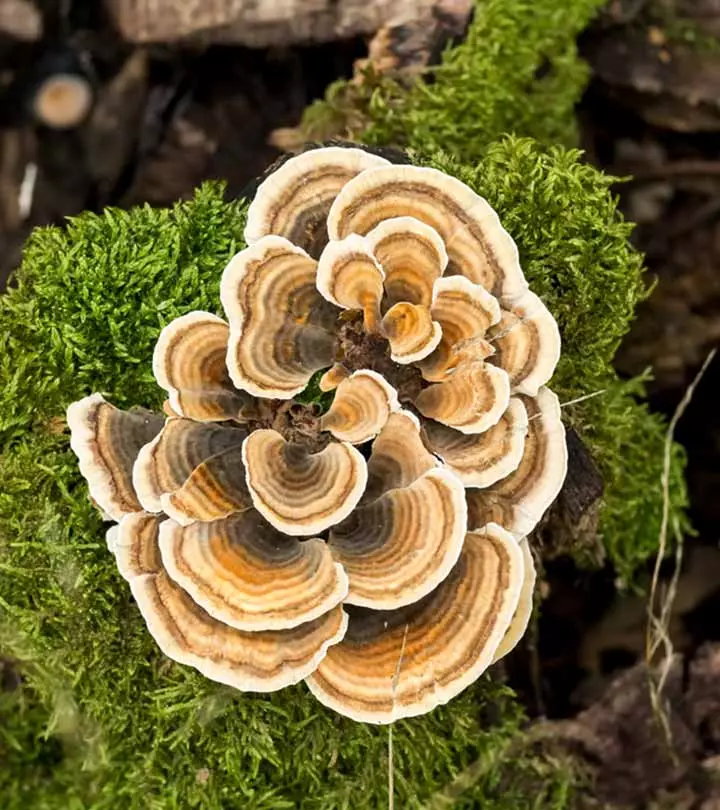

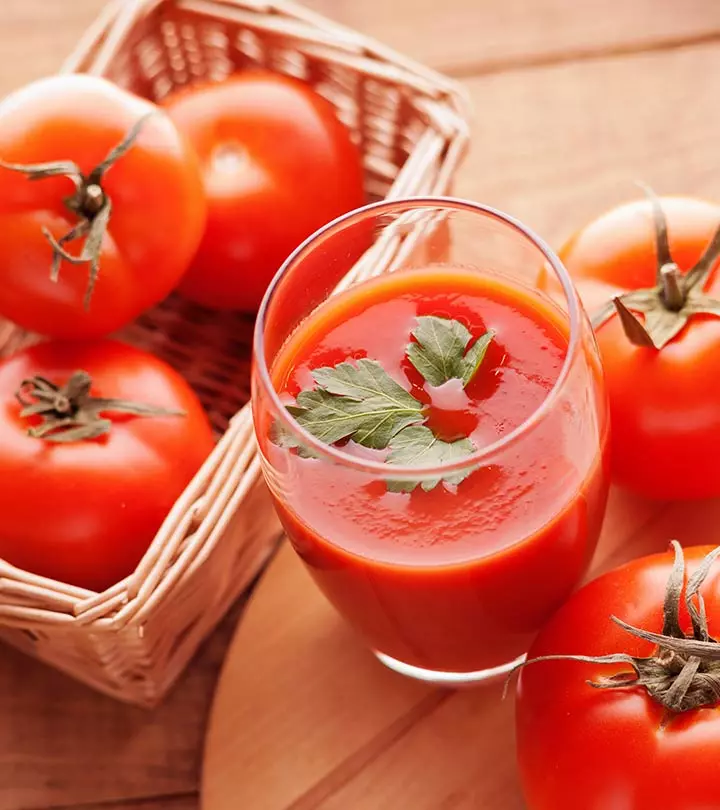
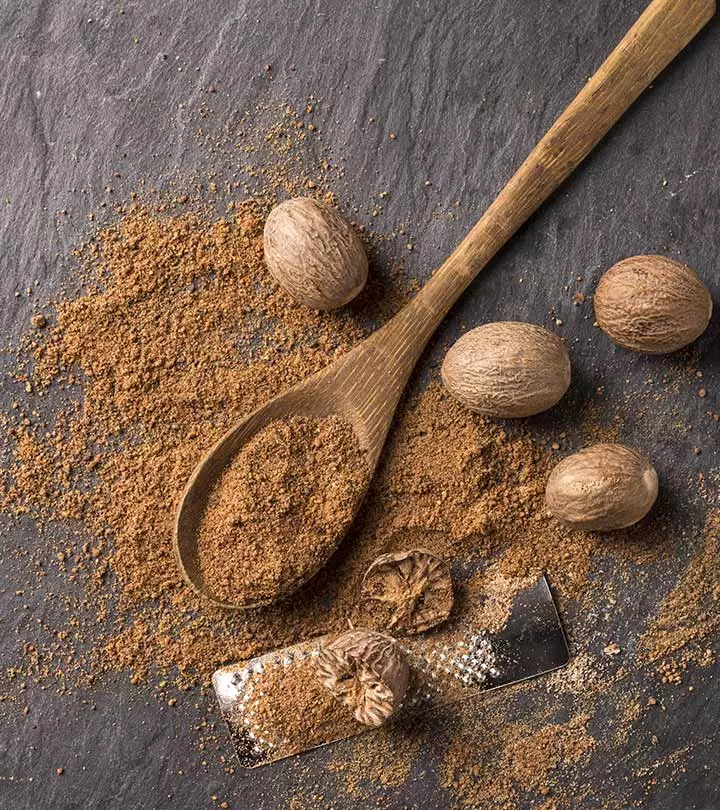

Community Experiences
Join the conversation and become a part of our empowering community! Share your stories, experiences, and insights to connect with other beauty, lifestyle, and health enthusiasts.